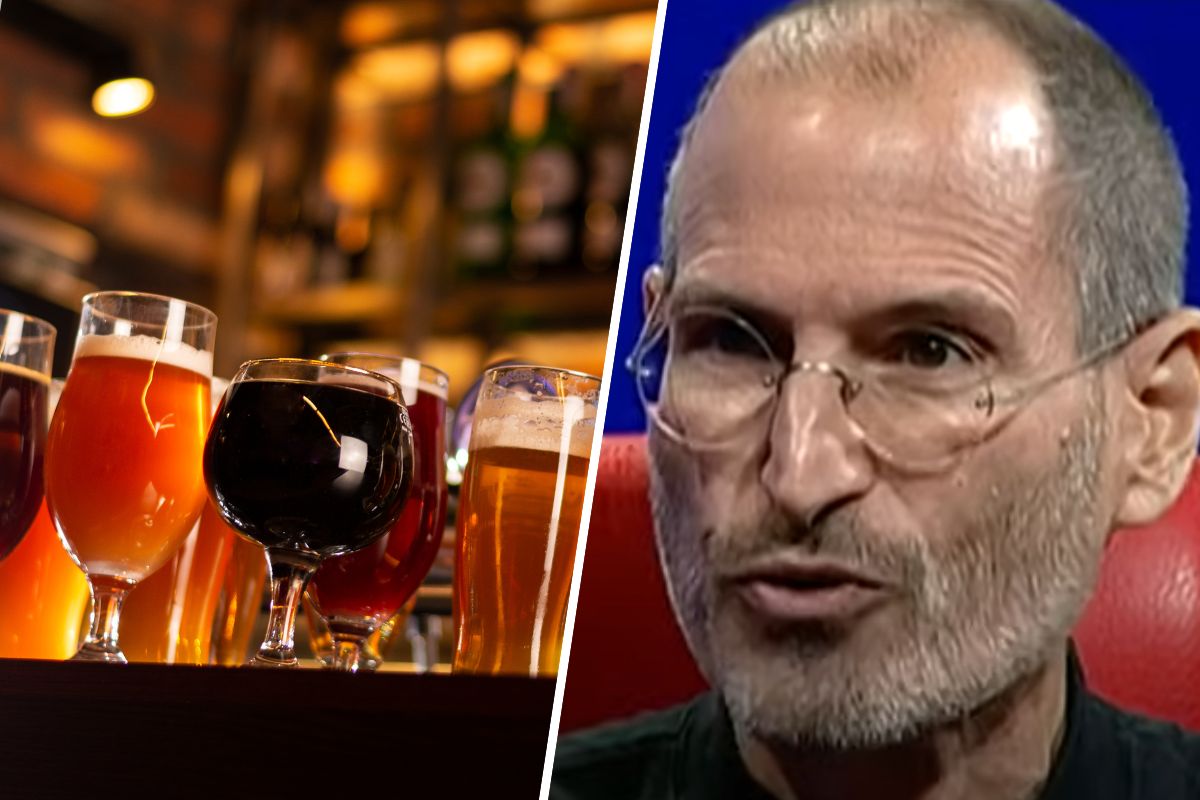Show table of content Hide table of content
Generation Z is redefining the codes of socialization. Whereas their elders drank beer and wine, these young people prefer sobriety. A trend that echoes the philosophy of Steve Jobs, who long before them understood the benefits of constant mental clarity.
Sobriety, the new standard for Generation Z
Generation Z, born between 1997 and 2012, seems to have found a new way to enjoy life: without alcohol. Whereas previous generations often associated moments of relaxation and socializing with alcohol consumption, today’s young people are increasingly favoring sobriety. This trend, which may come as a surprise, reveals a growing awareness of the issues surrounding health and well-being.
According to a World Finance report, Generation Z consumes on average 20% less alcohol than millennials, who themselves drank less than their predecessors. A Gallup survey from 2023 confirms this downward trend, with a ten-point drop in the percentage of adults under 35 reporting alcohol consumption in two decades.
To understand this phenomenon, it is essential to look at the motivations of this generation. Generation Z attaches the utmost importance to their mental health, considering it as important as their physical health. This awareness influences their choices, including their relationship with alcohol.
The idea of sacrificing an entire day because of a hangover doesn’t appeal to this generation, who value optimizing their time and productivity. For them, the few hours of artificial euphoria don’t make up for the loss of a day’s work or well-being.
Emerson Haven, a 26-year-old stage manager, testifies: “There’s a history of alcoholism in my family, so I’m cautious about it. I never drink alcohol if I’m having a bad day, because I don’t want to create that association.”
Steve Jobs, a pioneer of sobriety
This approach to life, based on lucidity and self-control, is reminiscent of Steve Jobs’ philosophy. The Apple founder was known for his sobriety. While his peers in the world of technology concluded business deals over glasses of whisky or champagne, Jobs preferred to remain lucid by consuming tea, coffee or fruit juices.
Walter Isaacson, in his biography of Jobs, recounts that the entrepreneur rarely consumed alcohol, preferring to keep his mind under control. For Jobs, there was no distinction between his personal and professional life. Everything was linked to his quest for excellence. And alcohol was not part of this equation.
Jobs’ obsession with mental clarity was such that it could make working lunches tense. David Black, a former Apple engineer, recalls, “Nobody wanted to sit at the table with him.” The reason was not disrespect, but the fear that a simple meal would turn into a surprise exam with a devastating question: “What are you working on today?”
Jobs applied the same intensity to his body. His mainly vegetarian diet, his meditation practices and his refusal of alcohol were all part of a philosophy of life focused on maintaining a clear, present mind. An approach that Generation Z is rediscovering today, decades later.
Steve Jobs’ paradoxical “beer proof”
Despite his sobriety, Jobs sometimes used informal meetings over drinks to assess potential candidates. The Apple founder would take candidates out of the offices and formalities for a drink together, where he could judge whether they really matched his vision.
“Would I have a beer with this person? Would I have a relaxed conversation with them on a walk?”, Jobs would ask himself. It was in these moments, away from meeting rooms and offices, that he could observe the real candidate, not the version prepared for a formal interview.
Jobs’ paradoxical use of the social context of alcohol shows that, even for a genius who avoided alcohol, the social context around him could be a useful tool.
Several factors explain this sobering trend among Generation Z. According to George F. Koob of the National Institute on Alcohol Abuse, “Alcohol tends to be a social drug. Part of the decline could be linked to less face-to-face socialization.” Statistics bear out this observation, with time spent with friends in person declining from 30 hours a month in 2003 to just 10 hours in 2020.
This change has encouraged the emergence of “sober bars” in cities like New York, places where it’s possible to socialize without consuming alcohol.
The influence of social networks also plays a role. Dr. Sybil Marsh, a specialist in family medicine and addiction, explains: “There was a time when drinking alcohol was a sign of maturity and sophistication. But today, it’s just one of many ways people can relax.”
Superpower in an accelerated world
What’s particularly interesting about this trend is its link with Jobs’ philosophy. The Apple genius understood before anyone else that the real competitive edge lay in always having a present, active mind. The famous “Stay hungry, stay foolish”. In an increasingly fast-paced world, the ability to think clearly is a real superpower.
Generation Z seems to have reached the same conclusion. They don’t reject alcohol out of boredom or repression, but because they want to be present and live every moment to the full. They want to experience reality without filters. Like Jobs, they want to control their minds and their lives.
As Jobs himself said, “Your time is limited, don’t waste it living someone else’s life.” Generation Z seems to have got the message, and is determined to live its life with a clarity that many previous generations sacrificed in the name of traditional socialization.



Minor point left out about Steve Jobs.
In his early days, he was a huge LSD user. THAT probably had a lot to do with his attitude.
Steve Jobs treated his cancer with potions and magical elixirs until it reached a point where conventional treatments that likely would have been effective if used sooner, failed. His views on health should be weighed with extreme skepticism. I’m not saying alcohol is not potentially damaging but founding any argument on Job’s ideas about health are fraught.